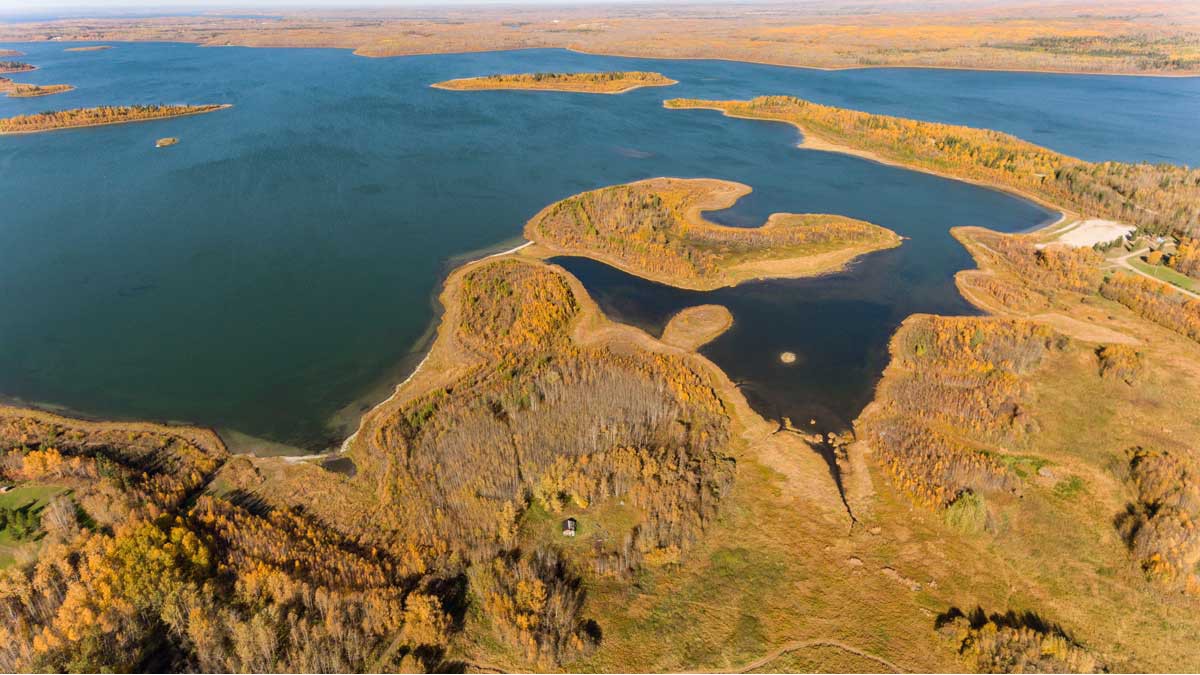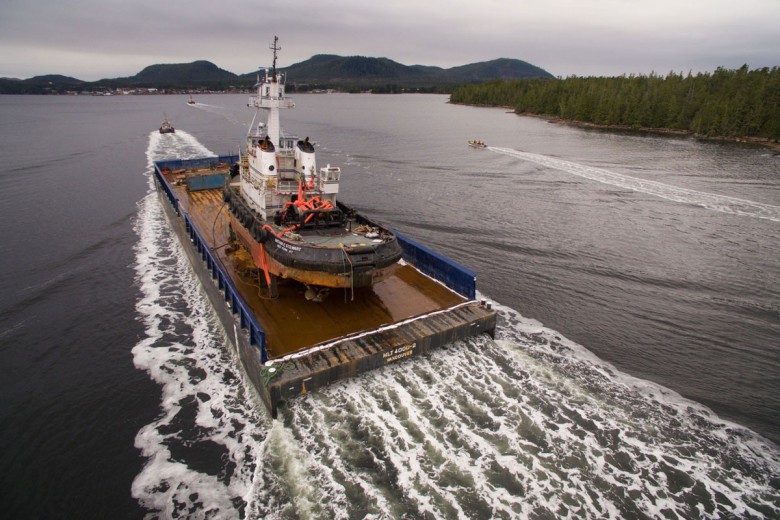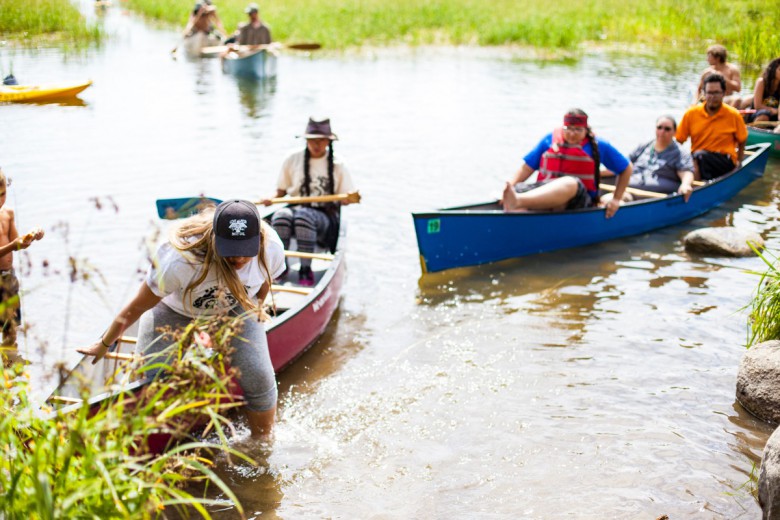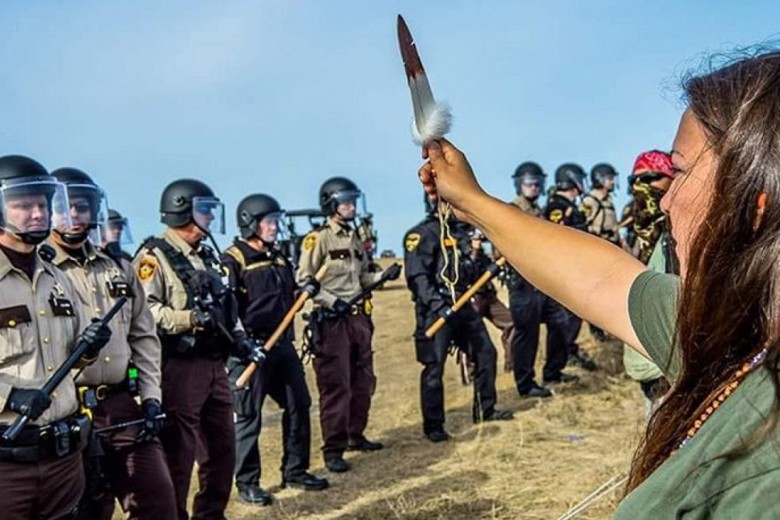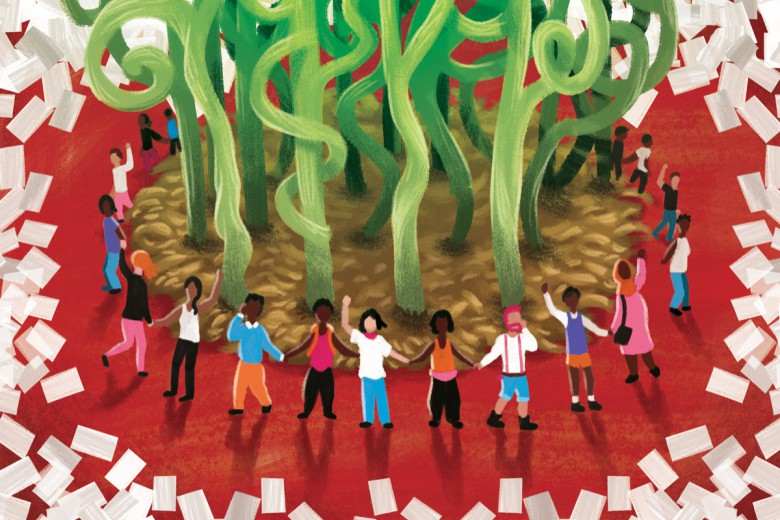While the world reached an unprecedented standstill in the grip of COVID-19, the hum of machinery, extractive industries and the policies that support them never stopped.
Now, in the midst of fighting a pandemic, Beaver Lake Cree Nation is being forced to dig into scarce community coffers to defend their Treaty rights. The small Indigenous nation was back in court on June 4, defending the historic case known as the Tarsands Trial. Drawing on a powerful resolve that has been forged over a decade of facing down – and prevailing – against the governments of both Canada and Alberta, Crystal Lameman, Beaver Lake Cree government relations advisor, explains, “This is about Beaver Lake having a say in what development looks like in their territory, and on their lands, to which neither Alberta nor Canada has a bill of sale to – not under Treaty-making, and not via any subsequent unilateral decision-making authority.”
“The Crown has consistently denied that under the Treaty it must consider the combined effects of multiple industrial activities on the way of life of the Beaver Lake Cree over time,” she added.
They are the first community to ever challenge – and be granted a trial – on the cumulative environmental, social, and cultural impacts of industrial development.
In northern Alberta, where the Athabasca River flows north past boreal forest, peat, and muskeg, the forested landscape and watershed sequester carbon while simultaneously filtering millions of gallons of water. Beaver Lake Cree Nation has stewarded and thrived from these lands since time immemorial. But now, their traditional territory has become ground zero for the tarsands: Canada’s fastest growing source of pollution and the largest industrial project on Earth.
The impact of the tarsands has been particularly dire for Beaver Lake Cree Nation, a small community located three hours north of Edmonton. In 2008, Beaver Lake Cree Nation filed a constitutional challenge over the impacts of multiple tarsands mines and other industrial development in Beaver Lake Cree territory. They are the first community to ever challenge – and be granted a trial – on the cumulative environmental, social, and cultural impacts of industrial development. Due to its profound toxic effects, tar
sands development represents a failure of the Crown to uphold Treaty promises that Beaver Lake Cree should be able to to hunt, trap, fish, and gather “for as long as the sun shines, the rivers flow and the grasses grow.”
The broken promises of Treaty 6
In 1876, the Crown and the ancestors of the Beaver Lake Cree entered into Treaty 6, whereby the Crown made a solemn promise that Beaver Lake Cree would be able to maintain their way of life. This treaty, a living agreement between First Nations and the Crown, was affirmed in Section 35 of the Constitution Act, 1982: “The existing aboriginal and treaty rights of the aboriginal people in Canada are hereby recognized and affirmed.”
Fast-forward to 2020: 90 per cent of Beaver Lake Cree territory has been scarred and polluted by numerous industrial projects. The numbers are staggering: 35,000 oil and gas sites, 21,700 kilometres of seismic lines, 4,028 kilometres of pipeline, and 948 kilometres of road – with devastating effects on wildlife populations like the caribou, and fish species.
From a petroleum geologist’s perspective, Beaver Lake Cree is sitting on a goldmine. But the oil and gas resources under the surface are hard to access and sporadically located: the proliferation of roads, pipelines, and drilling sites has meant that the true wealth of the nation – moose, elk, and other wildlife – have had their habitats fragmented into ever-diminishing pockets.
The numbers are staggering: 35,000 oil and gas sites, 21,700 kilometres of seismic lines, 4,028 kilometres of pipeline, and 948 kilometres of road.
Beaver Lake Cree’s territory encompasses the southern portion of the Athabasca deposit and the entirety of the Cold Lake deposit. These tarsands deposits are being extracted by a method called steam-assisted gravity drainage (SAGD). Also known as in situ tarsands extraction, this method is often used for deposits that are too deep for open-pit mining, but it leaves a larger environmental footprint than open-pit mining does. Using large amounts of water mixed with anti-coagulant chemicals and heated with LNG (fracked gas), SAGD involves injecting steam into the earth to melt the underground bitumen. The toxic mixture of bitumen and now-polluted water is then pushed to the surface and shot through a network of pipelines. Once a site is exhausted, a new road – and pipeline network – is needed for each new SAGD facility. There are thousands of such wells in Beaver Lake Cree territory.
Canada and Alberta: delay and outspend
In pursuing the tarsands trial, as the constitutional challenge has come to be known, Beaver Lake Cree have spent over three million dollars over the past 10 years fighting off delay-and-outspend tactics by Canada and Alberta. Well-aware that a legal precedent, which defines Treaty obligations in the context of cumulative impacts, would change business-as-usual across the country, both governments attempted – twice – to have the case dismissed. Instead, the Alberta Court of Appeal stated strongly in 2013 that the case was meritorious and of public importance.
In their quest to have the nation’s treaty rights upheld, Beaver Lake Cree have made many sacrifices, and have drawn heavily on scarce community resources.
According to Lameman, “For ten years, Beaver Lake pushed this complex claim ahead to the extent it could, at a cost of $3 million. Half of the funds were from generous donors who understood the importance of these matters being heard by the courts. Knowing that this case rested on environmental justice, health and protection, a community of people from across the country and around the world stood up and supported Beaver Lake’s efforts to enforce its Treaty rights.”
Well-aware that a legal precedent, which defines Treaty obligations in the context of cumulative impacts, would change business-as-usual across the country, both governments attempted – twice – to have the case dismissed.
With a decade of solidarity actions around the world, from the Co-op Bank of the UK and the UK Tarsands Trial fundraising campaign raising $400,000 to frontline solidarity fundraiser events taking off across Canada and the world, over $1 million was raised by supporters for the Tarsands Trial.
The cost of justice
Writing in a blog post, Lameman says, “In 2018 the community came to the agonizing decision that they could no longer proceed with the litigation as it required at least $5 million more to get to trial, which the Nation does not have. In April 2018, Beaver Lake filed an interim costs application, which asked the Court to order that Canada and Alberta share the cost of bringing the case forward. In doing so it painfully exposed [the nation’s] financial poverty and community challenges in a thorough record of over 5,400 pages of financial statements. Justice Browne, who had presided over the case for 7 years, heard the matter for 2 ½ days in February 2019, while the Nation’s elders, land-users and leadership looked on, after fundraising to make the trip outside of the community to be present during the hearing.”
In her ruling, Justice Brown emphasized that access to justice meant addressing the “gross power imbalance between the parties.”
In September 2019, Justice Browne found that the case had merit, was of public importance and that it was in the interest of justice to proceed. The judge also stated that, without the support of the advanced costs award – whereby which each party would share in the costs of the litigation – Beaver Lake Cree would not be able to proceed with the case because of their monetary impoverishment. In her ruling, Justice Brown emphasized that access to justice meant addressing the “gross power imbalance between the parties.”
Despite this ruling, Canada and Alberta continue to dispute Beaver Lake’s poverty and have appealed the advanced costs order. This week, the Alberta Court of Appeal will determine whether or not the nation will be supported in their pursuit of justice. Just to contest June 4th’s appeal, Beaver Lake Cree has had to raise $120,000. That funding came from allies and donors around the world through RAVEN (Respecting Aboriginal Values and Environmental Needs), a charitable organization created to provide access to justice for Indigenous Peoples who are so often faced with the choice between pursuing justice and providing for their communities.
“As a First Nations community in Canada, it’s pretty common sense and common knowledge that many of our communities are impoverished and chronically underfunded. This appeal is going to determine whether or not the nation will continue on our path to access justice or will we be denied due to our financial poverty,” states Lameman.
An impossible choice
In appealing the advance cost order, Canada and Alberta went as far as to argue that, because they were recently able to repair the community water truck, Beaver Lake Cree are able to afford a multi-million dollar trial. In fact, because of failing infrastructure and a rise in the on-reserve population, the nation must replace their water treatment plant – but they lack the means to do so. In the meantime, the water truck is the only way the nation is able to deliver drinking water to many community members.
Lameman says, “they picked apart all of the evidence we put forward. It was painful and embarrassing for the nation to have to expose its financial poverty when we brought the advanced cost application forward. Canada and Alberta went through with a fine-tooth comb and pulled whatever piece of information they could try to garner up and say ‘are you actually impoverished? Are you actually financially unstable if you can afford to fix or replace your water truck?’ It was a question of the nation meeting basic human needs of the community over funding a litigation that is about meeting our basic needs as well. We have basic needs that are met through our land-based practices and our sustainability through the land.”
"In meeting the very basic needs of the community, we are also protecting that rich and abundant life that we rely on for our holistic wellness."
Lameman adds, “Yes we are financially impoverished, but we have a deep, abundant, rich life within our ceremonies and on the land. Through the over-development of our lands, territories, and resources, governments and industry are attempting to deprive my nation of this meaningful way of life, and now I feel in this application and appeal, they say we should spend every penny we have. In meeting the very basic needs of the community, we are also protecting that rich and abundant life that we rely on for our holistic wellness. It’s about them taking every last thing from us financially and with our relationship with the land.”
The battle over the ongoing tarsands expansion is essentially about the Beaver Lake Cree’s fundamental right to exist. “Contrary to popular belief, the governments have not relented,” says Lameman. “They have not put people over profit. Until we see meaningful change grounded in our right to Free, Prior and Informed Consent (FPIC), we will not relent either. We cannot, because our living, breathing earth, and the generations yet to come – no matter race, colour, or creed – are relying on it.”
“What this case is not about is pitting economics, revenue, and industry against First Nations’ assertion of sovereignty, self determination, and our right to FPIC,” she adds. “This is about an intentional Treaty relationship grounded in a co-existence of peace and sharing, and it is about our right to say ‘yes’ or ‘no’ and for that right to be honoured.”
Update, June 12: On June 5, Alberta voted to pass Bill 1, the Critical Infrastructure Defense Act. The act would fine land defenders up to $25,000 for blocking, damaging, or even entering any area around a pipeline or resource extraction project that the government deems "essential infrastructure." Land defenders can also be jailed for up to six months for protesting against or interfering in any way with public and private pipelines, oil and gas production, highways, railways, and mines. Essentially, the Premier of Alberta has passed into law the ability for police to arrest and jail Indigenous people for protecting their own land.
This Bill was passed in the midst of the COVID-19 pandemic. Alberta's Energy Minister, Sonya Savage, said that the pandemic means that "now's a great time to be building a pipeline because you can't have protests of more than 15 people. Let's get it built."
The bill will also strip Indigenous people of the right to gather, hunt, and fish on their traditional lands, since the Lieutenant Governor in Council has the authority to deem any location "essential infrastructure." Protestors may be gathered at a location they believe to be legal, which could – without notice – become "essential infrastructure," allowing the police to arrest and charge protesters.


